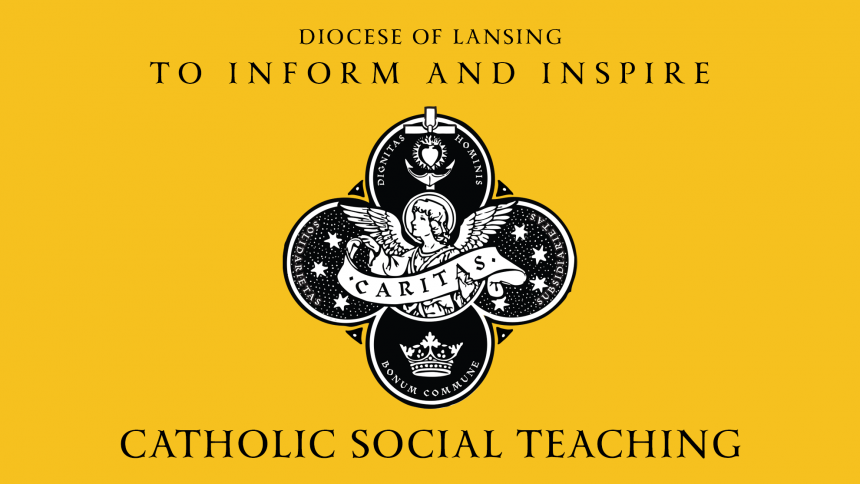
Today is the United Nation’s “World Day of Social Justice”. What, though, is “social justice”? It’s a term that is widely used but, often, goes ill-defined. In this article, below, the Chairman of the Diocese of Lansing’s Commission on Catholic Social Teaching, Kishore Jayabalan, argues that “social justice” is best understood in the light of Catholic Social Teaching as developed over the past two millennia and, especially, since the pontificate of Pope Leo XIII in the late 19th century. Kishore writes:
As citizens and inhabitants of the 10 counties of the Diocese of Lansing, we Catholics are obliged to contribute to the building of a just society for the benefit of each and all. This commemoration should therefore encourage us to reflect on the concept and virtue of social justice, especially as it originates in Catholic social teaching and, when it is properly understood and implemented, has much to offer to this common task.
The term “social justice” was first coined in 1855 by the Italian Jesuit priest and economist Luigi Taparelli d'Azeglio (1793–1862) and was based on the rights and duties human beings have in society. These rights and duties were largely derived from the natural law teachings of St. Thomas Aquinas (1255-1274) and his followers, which Taparelli sought to adapt to rapidly changing European societies in the wake of the French Revolution. This Revolution sought to re-define such rights and duties without reference to God and set the stage for the political and cultural confrontations that are still with us today.
Taparelli’s work was very influential on Pope Leo XII (1810-1903), who used the term “social charity” rather than social justice in his 1891 encyclical Rerum Novarum (“Of New Things”). It is considered the first modern social encyclical because it addressed the relationship of capital and labor and its effects on society. In addition to the challenges of the French Revolution, it addressed the social changes that resulted from the Industrial Revolution as well as the Marxist critique of private property and the predominance of capital (i.e. “capitalism”) over labor. Social charity sought to temper the class conflict that Marx believed would eventually lead to the overthrow of capitalism.
In the 1931 encyclical Quadregismo Anno (“The Fortieth Year” after Rerum Novarum), Pope Pius XI writes about “social justice” in order to address the proper functioning of the State and civil society and introduces the principle of subsidiarity to ensure both the autonomy of and assistance due to civic associations. Pius confronted the rise of the modern State in ideologies such as communism and fascism that sought to eliminate or subsume such associations under totalitarian regimes.
Following these landmark social encyclicals, each pope has developed the Catholic understanding of social justice to protect human dignity while furthering equitable social and economic progress. Catholic social teaching recognizes that institutions and structures can impede the common good of society by denying the fundamental and intrinsic worth of the human person made in the image and likeness of God.
The contradictions of modern society are all too evident in our nation, where unprecedented material well-being coexists with the evils such as abortion, euthanasia and human trafficking. (Particularly insightful is Pope John Paul II’s post-Cold War social encyclical Centesimus Annus, on the hundredth anniversary of Rerum Novarum.) Such threats to human dignity go beyond instances of personal sin when they are legally protected and socially promoted, thereby shaping the moral tenor of society; they therefore require social as well as personal responses. This is the Catholic vision of social justice that the Church proposes to all men and women of good will.
• To learn more about Catholic Social Teaching and the Diocese of Lansing’s Commission on Social Teaching, go to: https://www.dioceseoflansing.org/social-teaching/what-is-catholic-social-teaching
